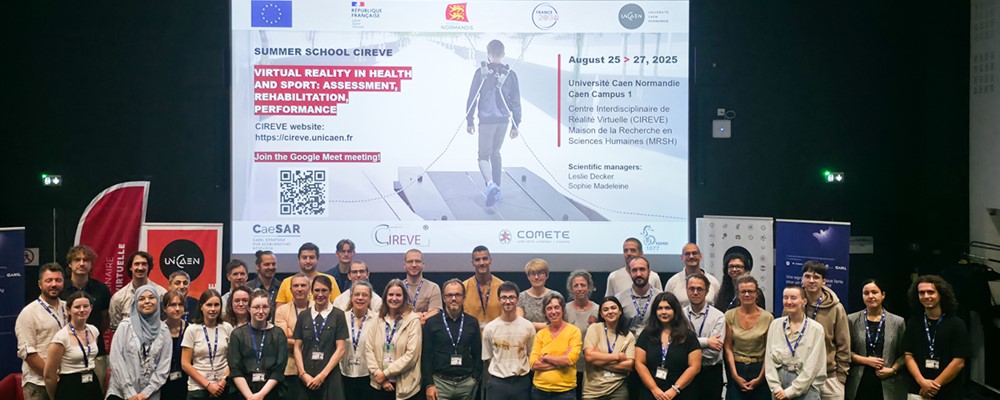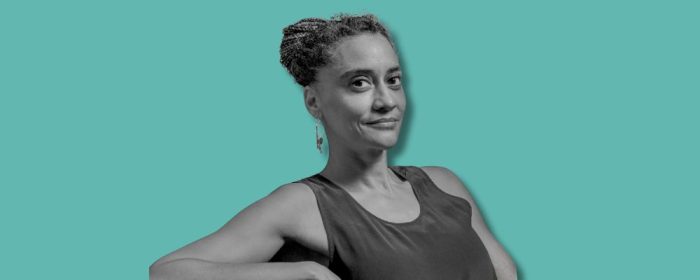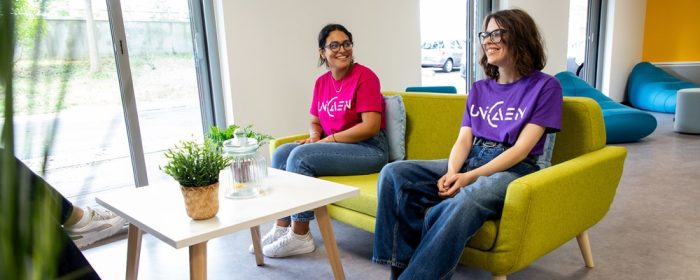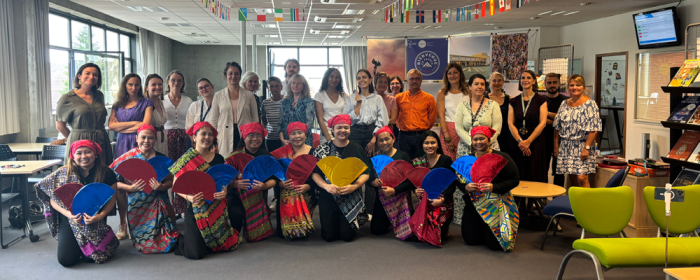As part of the CaeSAR (Caen Strategy for Acceleration in Research) programme, CIREVE hosted its first summer school from August 25th to 27th. Over three days, conferences, demonstrations, and roundtable discussions brought together scientific, clinical, and technological expertise on the uses of virtual and augmented reality.
Research and practice: an international synergy
The Interdisciplinary Centre for Virtual Reality (CIREVE) summer school was created with one ambition: allow high-quality discussions on how immersive technologies can contribute to health, rehabilitation, active aging, and physical performance. Organised by Sophie Madeleine and Leslie Decker, directors of CIREVE, this unique event brought together about 70 experts from France, Canada, the United States of America, Switzerland, and Belgium at the Humanities Research Centre of the University of Caen Normandy.
Specialists in physical activity and sport, health and rehabilitation, developers, designers of immersive tools… Laboratories and companies came together for a programme primarily in English to share perspectives between academic research, clinical practice, and technological innovation.
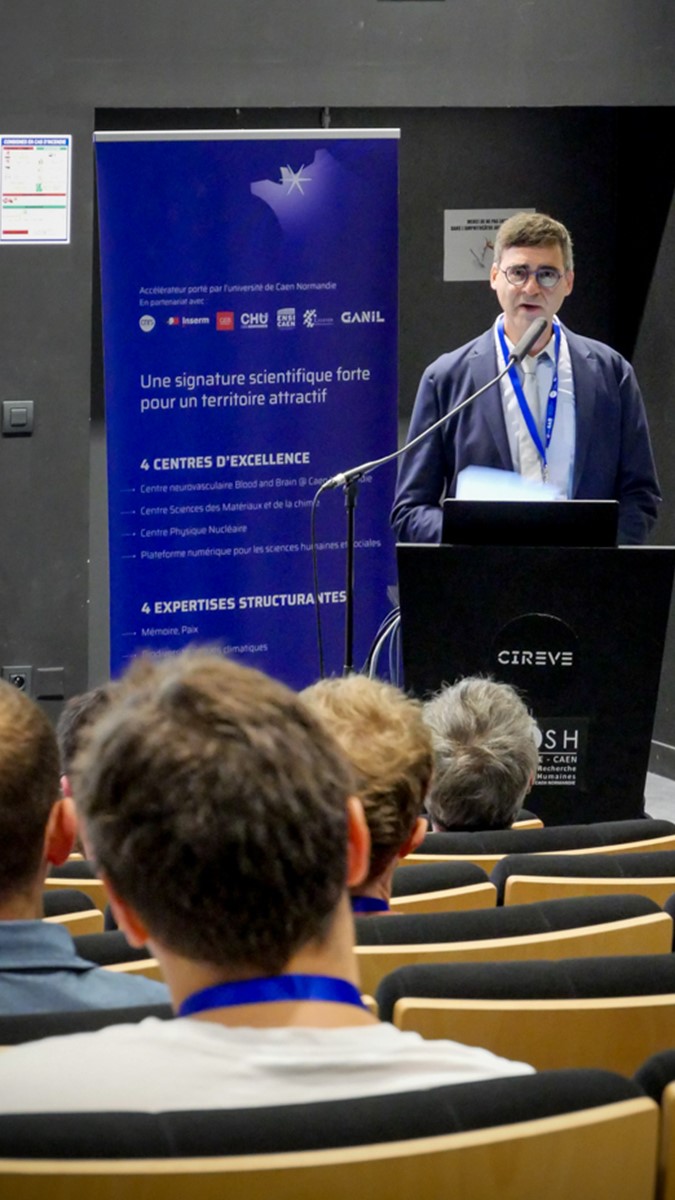
Jean-Marc Fournier, vice-president of the Research Commission. 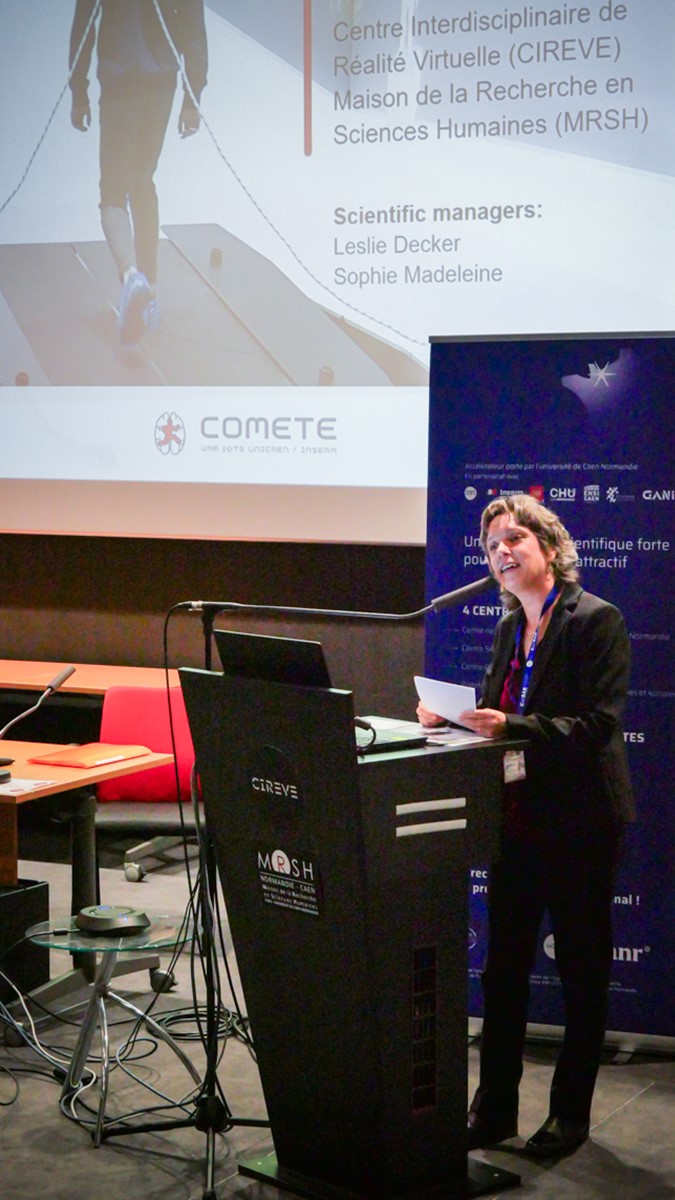
Sophie Madeleine, director of CIREVE 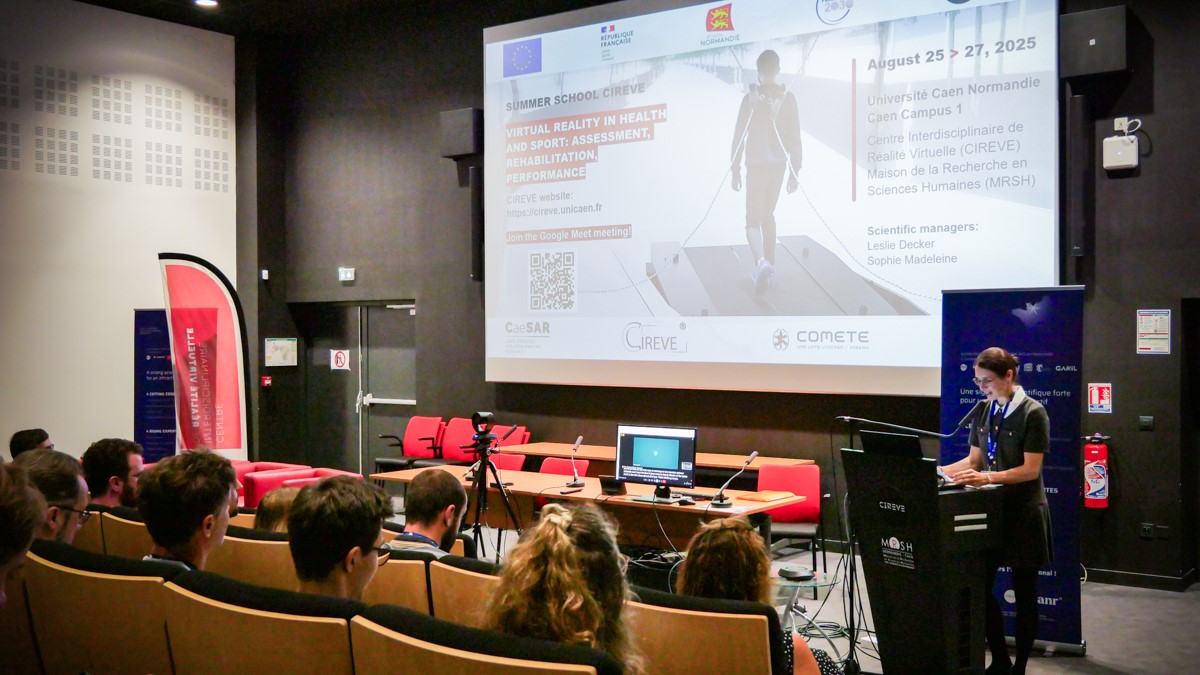
Leslie Decker, deputy director of CIREVE
Highlighting Caen’s expertise
During the summer school, several projects from the University of Caen Normandy were presented to the scientific community, including:
- Exploiting data from the PRESAGE project: conducted from 2019 to 2023, this project aims to identify signs of cognitive fragility. Resulting data are notably used for
- Studying the diversity of aging trajectories, through the work of Julien Rossato, postdoctoral fellow at the University of Caen Normandy. By combining dual-task gait analysis, neuropsychological assessment, and cognitive reserve measurement, his ProfilAGE project seeks to identify early signs of vulnerable profiles for pathological aging.
- Detecting early signs of cognitive fragility through detailed gait analysis led by Baptiste Perthuy, a doctoral student at the University of Caen Normandy under a Cifre contract with the a-Go company. This startup, of which Leslie Decker is Chief Scientific Officer, is developing a motion capture and analysis solution that is both easily deployable in a clinical setting and non-invasive for patients. This solution would enable early detection of motoric cognitive risk syndrome, a known precursor to major neurodegenerative diseases such Alzheimer’s or Parkinson’s.
- Using virtual reality to study our perception and memory of time, an innovative approach to neuronal aging, with the work of Thomas Hinault, PhD at the NIMH research unit.
- Designing accessible solutions to facilitate the design, deployment, and analysis of scientific protocols via virtual reality, by the company InMind-VR, a CIREVE partner represented by Anne Le Gall, research engineer at the University of Caen Normandy.
- Visiting the CIREVE immersive room: created in 2015, this 5 by 10-meters room is the largest in the French academic environment.
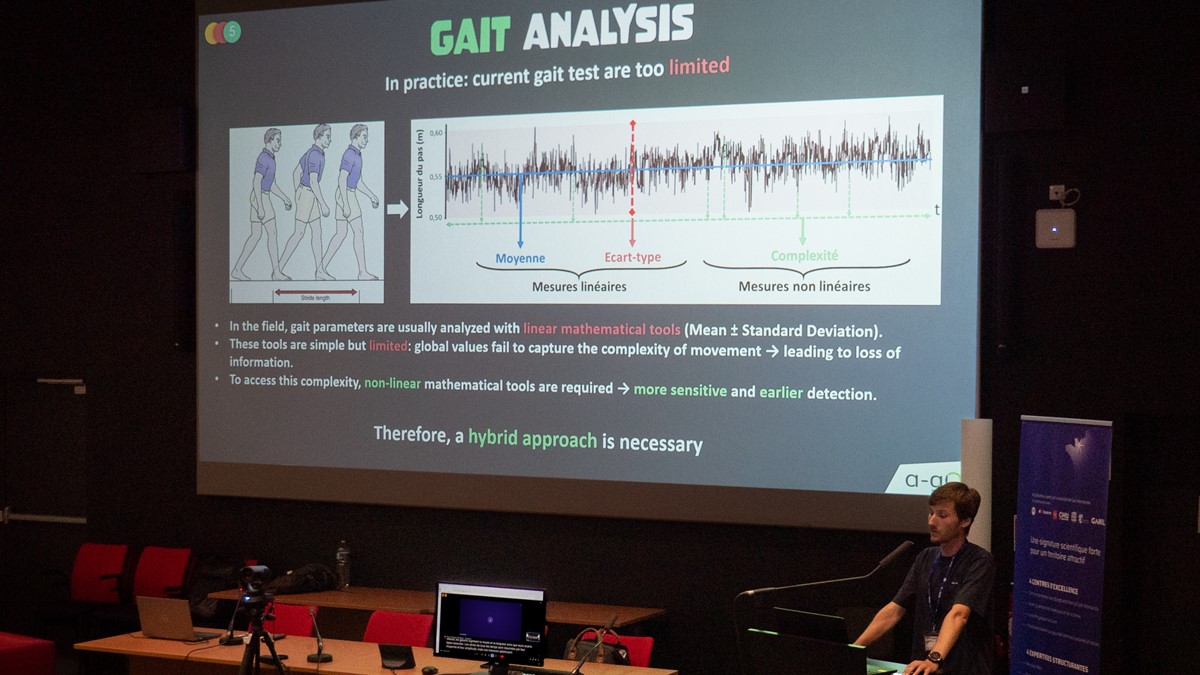
Gait-analysis tool developed by a-Go presented by Hugues Vinzant, engineer from EPFL in bioinformatics and AI. 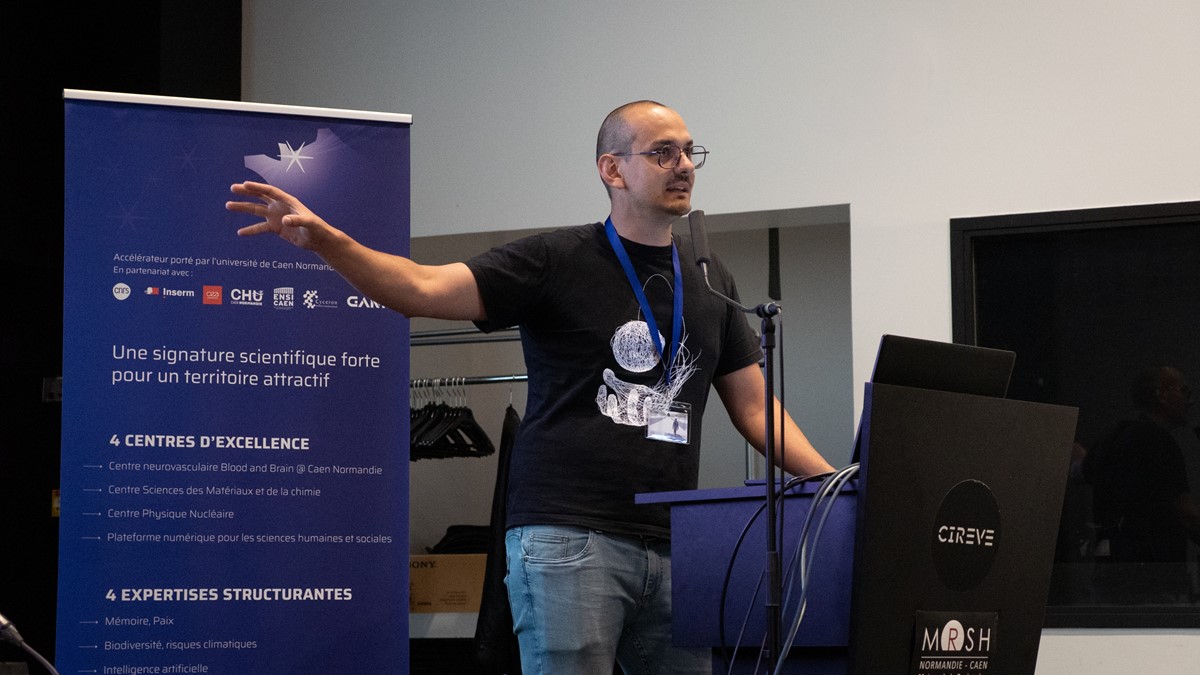
Julian Rossato, postdoctoral fellow at the University of Caen Normandy.
All these projects and discussions have been nurtured by the excellence of Normandy research in this field. As such, the CaeSAR project aims at promoting four fields of excellence at the University of Caen Normandy, including health innovation, on which focuses CIREVE’s works. As expected, this summer school allowed high-quality scientific exchanges. With such projects, the University of Caen Normandy once again actively contributes to the region’s transformation, innovation, and international scientific influence.
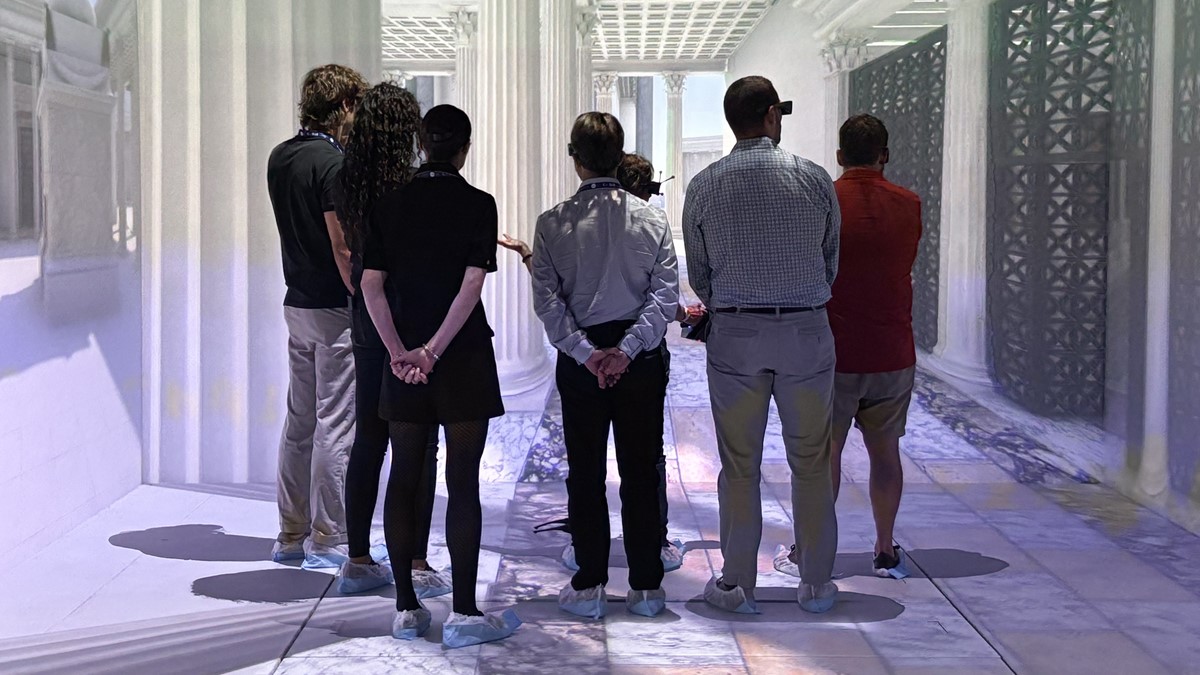
The CaeSAR project benefits from government support managed by the French National Research Agency as part of the France 2030 investment plan, grand number ANR-23-EXES-0001, and from the Normandy Region.


